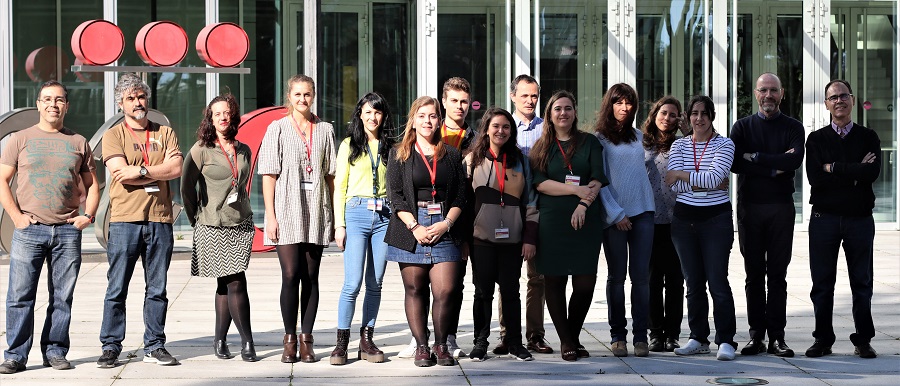Article by Dr Sabio's group receives the Antoni Esteve Foundation Research Award
The study, published in Nature in 2019, revealed relevant data about the involvement of the protein p38gamma in the development of the main type of primary liver cancer, which affects over a million people a year worldwide
In 2019, the Spanish National Centre for Cardiovascular Research (CNIC) group led by Dr Guadalupe Sabio published data in the journal, Nature, about the involvement of protein p38-gamma in the development of the main type of primary liver cancer.
The international jury, which awards the Premio de Investigación Fundación Dr. Antoni Esteve every two years, considers this scientific article to be the most important pharmacological publication by a Spanish author between 2019 and 2020.
As first author of the paper, Antonia Tomás Loba will receive the award on behalf of the whole team in an awards ceremony that, for public health reasons, will be held at the CNIC in the autumn.
The article, "p38γ is essential for cell cycle progression and liver tumorigenesis", not only shows that the protein p38-gamma controls cellular division in the liver, but also proves the protective effect of its inhibition in liver cancer, using both genetic models from which the protein was eliminated and chemical inhibitors. "Whether this protein was missing, or if its activity was blocked with a drug, we delayed the development of the tumour in mice", Tomás-Loba indicates. "These results could be extrapolated to humans as we have seen that p38-gamma is higher in human samples from patients with liver cancer", explains Guadalupe Sabio, Director of this CNIC research group.
"This finding is of great medical importance because it identifies p38-gamma as a promising pharmacological target for the treatment of liver cancer. The results were obtained using an excellent combination of pharmacological and genetic approaches to study the role of p38-gamma. The analysis was conducted using cutting-edge technologies in cellular and molecular biology, images and computational biology", explains Sabine Werner, of ETH, the Swiss Federal Institute of Technology in Zürich and Antoni Esteve Foundation Research Award jury member, along with Xavier Guitart, of the National Institute of Drug Abuse, USA, and Fèlix Bosch, Director of the Antoni Esteve Foundation.
This finding is of great medical importance because it identifies p38-gamma as a promising pharmacological target for the treatment of liver cancer
"The study therefore makes a fundamental contribution to our understanding of the progression of the cellular cycle in diseased liver and in regeneration, and opens new channels for the treatment of liver cancer", concludes Sabine Werner.
For some years now, this CNIC research group has been investigating the p38 kinase family of proteins, which are activated when cells come under any kind of stress. "While studying the three-dimensional structure of the proteins in detail, we observed that one of them, p38-gamma, was very similar to the another group of proteins known as CDKs. It has been known for some time that CDKs control cell division and their misregulation has been associated with the development of cancer", said Sabio.
This is the seventeenth edition of the Antoni Esteve Foundation Research Awards, which grant €18,000 to the best work of pharmacological research of any kind (design, synthesis, galenic development, clinical or laboratory evaluation, etc.) published by a Spanish author in the last two years.











